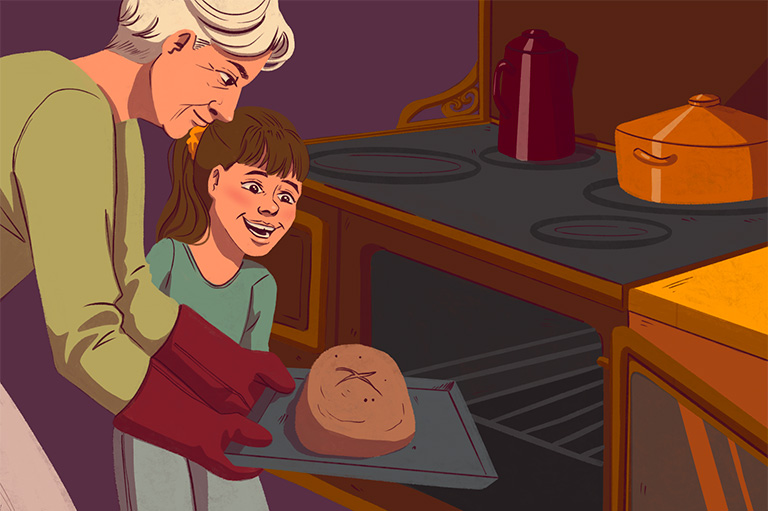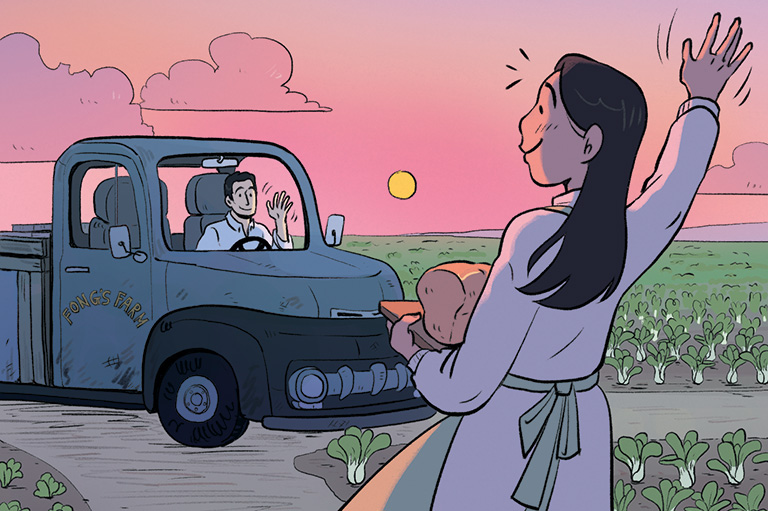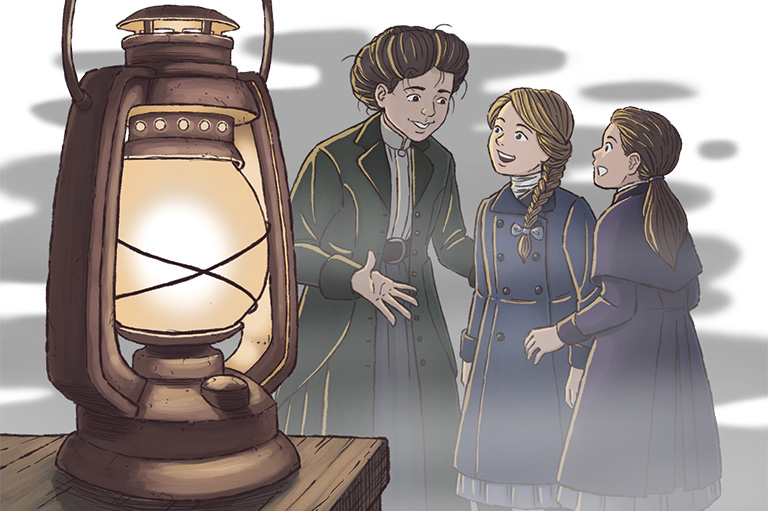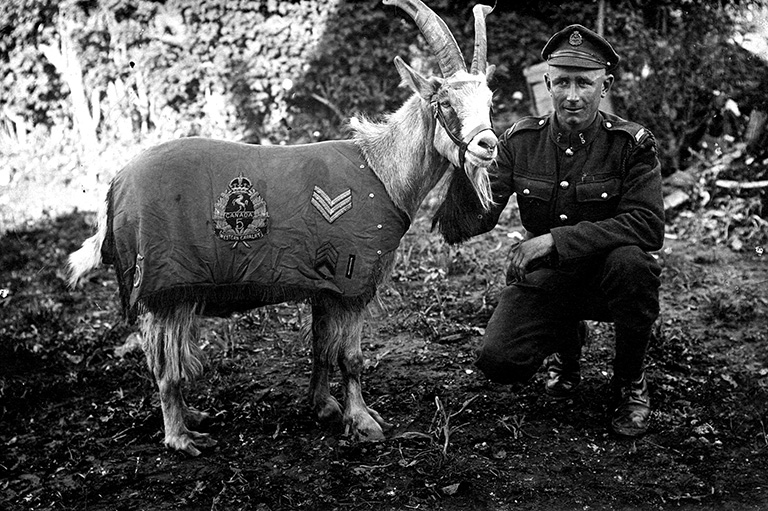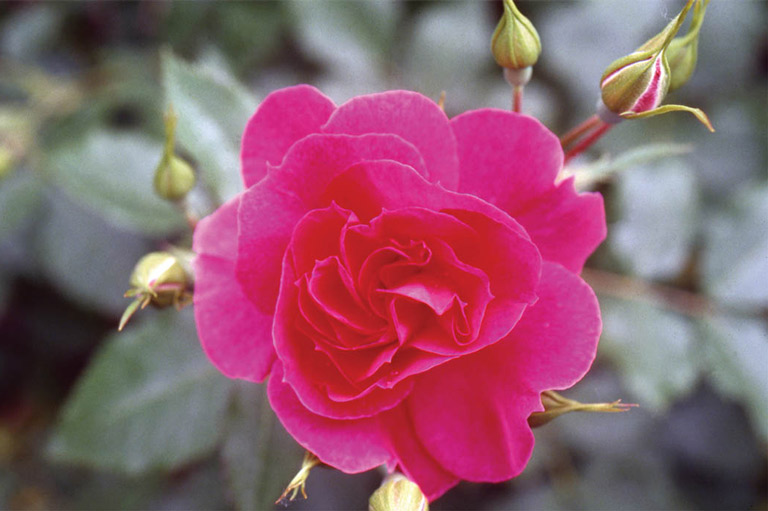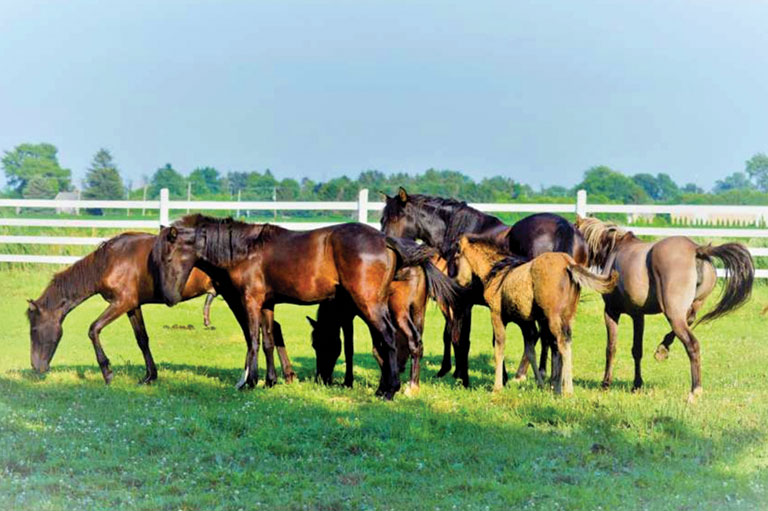Cellars over the Centuries
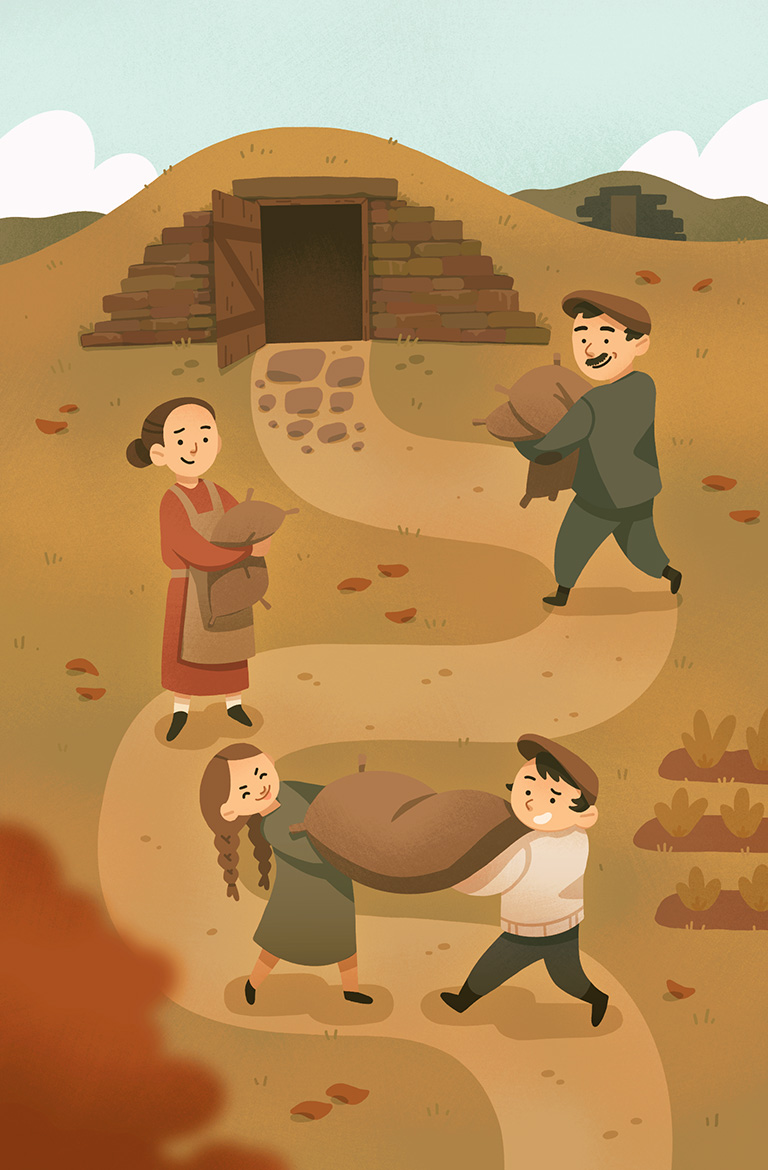
Bird Island Cove, Newfoundland, April 1839
“That’s the last one!” Gordon Chaulk called out from inside the small hill he and his neighbour Will Tucker had neatly hollowed out. He took a last look at the wooden boxes surrounding the central open space, then backed out and set down his hammer. “Have a look, Margaret.”
His wife put the last clothes pin in place to keep a sheet from blowing away in the fresh spring wind. “It’s hard enough to coax some vegetables from this soil while you’re off fishing. Now at least we have a spot to keep them from freezing or going bad.”
A swirl of little Chaulks and Tuckers ran ahead of her, over the huge rock in front of the door and through the wooden frame. “It’s our very own cave!” They piled into the snug storage space dug out of the hillside and lined with flat rocks stacked from floor to ceiling. “We can play hide and seek in here!”
Grandma Chaulk had also made her way down to the new root cellar.“Careful no one falls in there,” she cautioned the children. “You wouldn’t want the boo-darbies to grab you.”
The kids looked at each other,wondering how scared they should be. Margaret rolled her eyes. “I helped Gordon put the planks on the ceiling myself. It’s as solid as can be. The only thing going in there is vegetables.”
Her husband nodded. “They’ll taste awfully good in February when the fish is getting low and there’s not much fresh food about.”
Jimmy Chaulk raced out of the root cellar, a triumphant grin on his face. “No boo-darbies, Gran. Mr. Baker said to watch out for goblins but there’s none of them either.”
His sister Lucy chimed in. “Just our own play cave!”
“At least until it’s time to dig the potatoes,” their mother said.
Elliston, Newfoundland, August 1904
Evelyn sat down on the edge of the wooden bin. It had already been along day of digging carrots and hauling sacks from the garden to put in the root cellar. She’d nearly filled the bin and it was so nice and cool here, out of the sun.
The cellar darkened as her brother Ned entered with yet another sack of onions. “Slacking off, are you?”
Evelyn sighed. “Just needed a break before we tackle the turnips. Sometimes I hate the root cellar — it takes so long to get everything in here.”
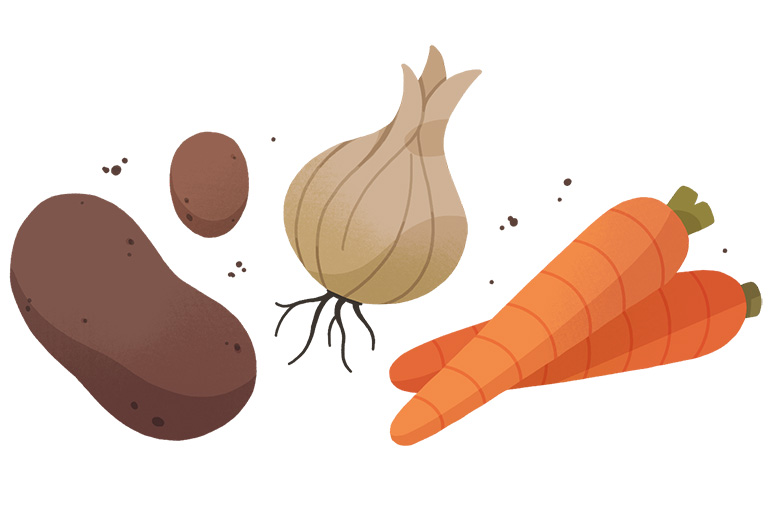
Ned plunked down beside her. “It used to be more fun when we were little and all we had to do was take things out of the sacks and put them in the bins.”
They jumped up as their mother came in with the first of the potatoes, her hair pulling loose from a once-tidy bun and sticking to her sweaty face.
“It’s hard work, my dears, I know. But the only thing worse than having to fill up a root cellar is having no root cellar and nothing to put in it. Winter was a terribly hungry time in my family when I was growing up.”
She looked around with a smile.
“That’s why it makes me happy to see all these vegetables stored away for us to use. Aren’t we lucky your Great-Grandma and Great-Grandpa Chaulk were smart enough to build this root cellar?”
Evelyn looked around with new eyes at the neatly stored vegetables that stood between them and hunger. She’d heard about the wonders of electricity in St. John’s, but out here, it still wasn’t easy to keep food from spoiling.
Their mother disappeared into the shadows, emerging with a small metal bucket brimming with blueberries. “Go on,” she said. “Help yourself. I hid these away to keep them fresh, but also to keep you lot from guzzling them all down right away. You’ve earned them.”
As the kids munched on the blueberries, their spirits lifted. “I see your point, Ma,” said Ned. “After all, without a root cellar, we might not have Sunday dinner!”
Elliston, September 2017
The sun sparkled off the little waves in the cove. Dasia turned to her dad. “Can we come back here next year? It’s so pretty!”
Her dad was watching little Sair and Amal busily competing to see who could throw a stone farther into the ocean. “Are you more excited about the big outdoor feast tonight or the dance afterward?”
Dasia jumped up and down with excitement. “Both! I wish we had those little earth houses back in Ontario. Do you think we can go into one?”
A kind-looking woman walking her dog stopped. “You’re welcome to explore my root cellar.”
“That’s so nice of you,” Dasia’s dad said. “I’ve seen them now and then on farms outside Toronto, but you folks have them everywhere!”
“That we do,” the woman laughed. “Mine is almost 200 years old, if you can believe it. I still use it to store things from my garden in the old Chaulk root cellar. In fact, you’ll be having some of my onions from last year at the feast tonight.”
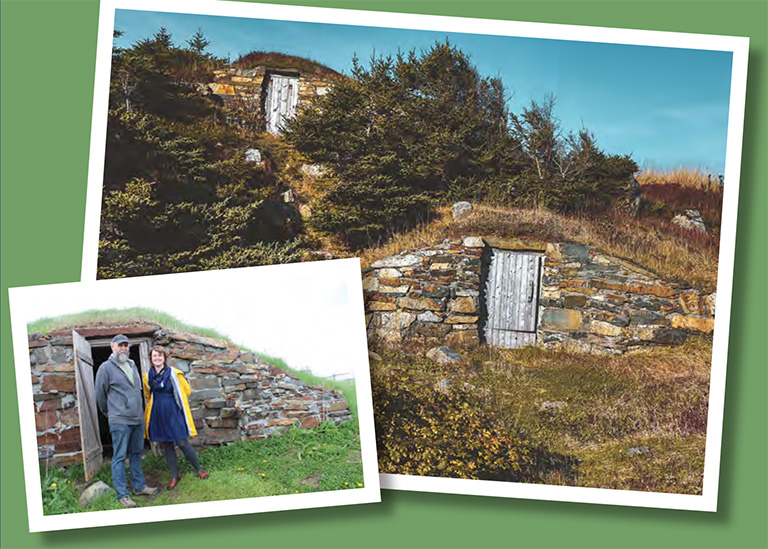
When the first English and Irish settlers came to what is now the island of Newfoundland in the 1600s, they quickly realized they’d need to find a way to store vegetables over the winter. There were many different designs of root cellars. Some were dug into hills and some were built out of mounded earth. Some went straight down; this kind often had a shed over top with a door in the floor. The cellar walls were made of stone, wood or later of concrete. Builders often divided the cellars into sections or bins with wood, which they also used for the roof. Although some root cellars were pretty small, others could be as big as a good-sized modern living room.
The community of Elliston, N.L., proclaims itself “The Root Cellar Capital of the World” because of the 130 or so root cellars in the town. It was first known as Bird Island Cove and renamed in honour of a Methodist minister in 1902.
In 1992, the Canadian government stopped people from catching cod. (Under strict rules, they’re allowed to fish for their own family’s use.) That put many people out of work and Elliston’s future looked nearly hopeless. Then someone had the idea of using the community’s root cellars, many of which were still in good shape, to attract tourists. There were tours to the nearby islands where lots of puffins nested (remember the town’s original name?). Elliston is now home to a memorial statue honouring those who died in the disastrous 1914 seal hunt, as well as the Home from the Sea museum and art gallery. More than 20,000 people a year now visit the town. Many come for the Bird Island Puffin Festival and the Roots, Rants and Roars event, which uses some of the food from those famous root cellars at its meals.
You probably figured out that a boo-darbie is a scary imaginary creature. Sunday dinner, also known as Jiggs’ dinner, is a traditional Newfoundland and Labrador meal of salt beef, cabbage, potatoes, onions, turnip (actually rutabaga) and carrots all boiled together.
Themes associated with this article
Advertisement

